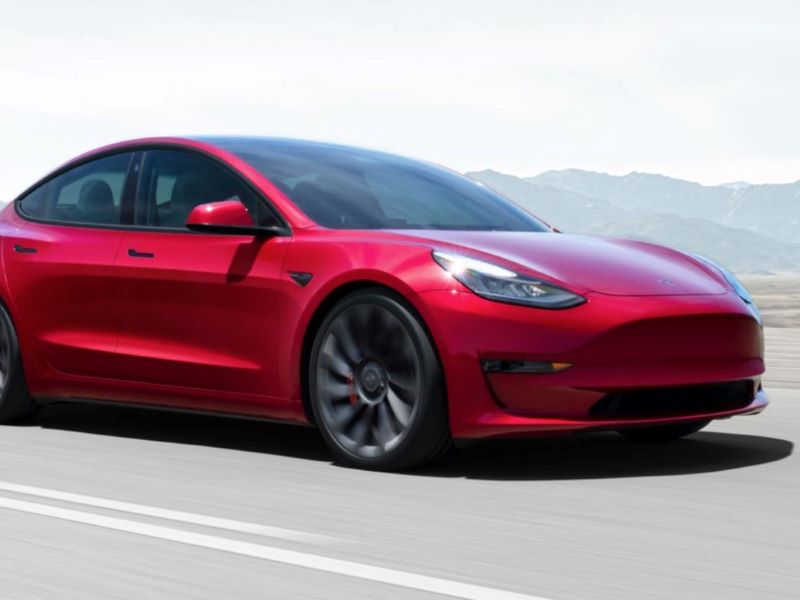The electric vehicle industry group has lashed the federal government’s “stunning failure” to support the domestic market after revelations second-hand Teslas are selling for more than retail price in Australia.
Auction house Lloyds on Wednesday said its lone listing for a near-new 2022 Tesla Model 3 had received a bid of $71,000, well above the retail price for the car, which is around $68,000 and can be reduced another $5,000 with state government subsidies depending on where it is purchased.

There is only one bid on the listing from Lloyds, which is also running the auction, but demand for the latest Tesla is high everywhere. Other car marketplaces list used Model 3s at or above retail prices and some buyers are even offering to buy other people’s place in Tesla’s official queue for a new car.
The wait time in Australia for a brand new Model 3 is more than six months as fuel prices hover around record highs.
The Electric Vehicle Council said the news second hand EVs are now selling above retail prices in Australia represents a “stunning failure” from the federal government, which has refused to directly subsidise the vehicles or set any mandates or targets for their make up of the market.
“This is a stunning reflection of how the Australian Government has allowed demand to totally outstrip supply of EVs, leaving Australian consumers with the choice between a massive wait or paying above retail for a used car,” Electric Vehicle Council chief executive Behyad Jafari said.
“The Morrison Government seems to have confused its own myopic views about EVs with those of average Australians and has completely misjudged how demand would grow.”
Prime Minister Scott Morrison criticised federal Labor’s plan to target 50 per cent of new car sales being electric by 2030, as bringing about the “end of the weekend”.
In November last year the Coalition unveiled its own Future Fuels and Vehicles Strategy, including EVs. It promised $178 million for charging infrastructure but contained no new subsidies for the purchase of electric vehicles, and did not implement any mandates or targets for the sale of these vehicles.
Federal charging infrastructure funding has also been opened up to hydrogen and non-EV projects this year.
But state governments have begun offering subsidies for new buys and their own funding for charging infrastructure – New South Wales alone has provided nearly the same EV charging infrastructure funding as the federal government.
New South Wales, Victoria, and Queensland governments now offer limited $3,000 subsidies for new EVs, with New South Wales also removing stamp duty for EVs under $78,000.
The three states have each intended to charge EV drivers a road user charge to recoup the revenue lost by not collecting the fuel excise.
However, backlash has seen the plan scrapped in South Australia under a new government, and pushed back in New South Wales to 2027. Victoria began its road user charge in July but is facing a high court challenge from electric vehicle drivers who say it is unconstitutional.
Federal Labor has promised to effectively subsidise some new EVs through tax concessions and boosting the second-hand market.
Mr Jafari said Australia remains a “uniquely hostile market” to EVs because of the lack of federal policy.
“Global carmakers are far more interested in selling cars in Europe or the US or even New Zealand, where fuel efficiency standards are established and governments offer unambiguous support to the transition,” he said.
“Every Australian who wants to buy an EV should have the same array of options as their counterparts in America or Europe. The fact that they do not is the fault of the federal government and its unique hostility to EVs.”
Do you know more? Contact James Riley via Email.


The only thing “stunning” about the comment from EVC’s Behyad Jafari is an apparent lack of relevance to reality.
It’s not government action causing 6 month waiting lists, it’s clearly a maker supply issue. Perhaps Jafari wants to shift focus away from EVC members by resorting to “I blame Scomo for…”, followed by the day’s talking point?
If only there was a federal tax that could generate money to support local manufacturing businesses – like “luxury” cars (work utes and everything else). :-/